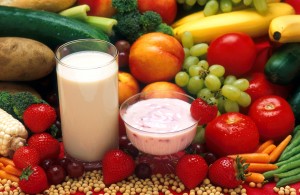 Fresh plants have the highest concentration of flavonoids, which are responsible for creating many of the green, yellow, orange, and red colors of plants. In fact, flavonoids are essentially pigments with extremely sophisticated chemical compositions. Just as they do in plants, flavonoids can help to protect the cells of the human body.
Fresh plants have the highest concentration of flavonoids, which are responsible for creating many of the green, yellow, orange, and red colors of plants. In fact, flavonoids are essentially pigments with extremely sophisticated chemical compositions. Just as they do in plants, flavonoids can help to protect the cells of the human body.
The Value And Benefits Of Flavonoids
Flavonoids have many uses, but the most important of these is the protection of internal cell structures. Flavonoids act as antioxidants, which allows them to reduce or eliminate the cell damage caused by free radicals.
Free radicals are among the most significant causes of major cell damage that leads to aging. As a result, it’s important to have a diet that’s high in natural antioxidants. While berries and other foods have antioxidants as well, flavonoids offer them in vast amounts.
Flavonoids also have a role to play in inflammation control, which is one of the most important areas where the body must be regulated. When the body’s inflammation reaction is too sensitive, it can contribute to high blood pressure, heart disease, and other problems.
It is possible to suffer from flavonoid deficiency. Symptoms of flavonoid deficiency generally have to do with bruising and the blood. If you are easily bruised, suffer from swelling after an injury, or have unusual nosebleeds, you may have a deficiency.
Most people can get enough flavonoids if they focus on eating fresh, healthy vegetables. However, it’s important to treat a flavonoid deficiency promptly, which can require some supplements to get the body back on track!